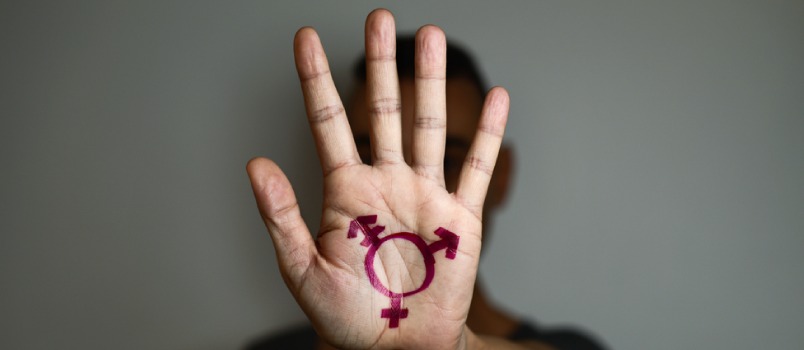Should I Tell my Partner That I Am a Transgender?

Unlock Daily 30-Sec Tips for a Happier Relationship
👉 Subscribe FREEKey Takeaways
Marriage.com AI Quick Summary
There we were, my boyfriend and I, watching the news on CNN when a short story segment popped up, it was the story of a Transgender person that identified as a woman, sharing her story of gaining entry and competing as a cyclist in an all-woman cycling competition.
My boyfriend got close and asked me: do you believe that a Transgender person should disclose their identity to the person they are dating?
The question set me off on a full-fledged rant about how it’s what’s inside that counts and not the outside; that love is love; and that if that person entered a relationship with a Transgender person unbeknownst to them, then that is because they found the Transgender person desirable and that’s all they needed to carry them forward, thank you very much.
As a friend, co-worker, and counselor to many individuals from the LGBTQI community, I’ve witnessed and heard so many stories of injustice, violence, and discrimination against these individuals, I often find myself reactive over what I perceive is a possible statement of judgement or contempt towards a person that identifies as being Transgender.
Approximately a week after my rant, my co-worker and dearest friend Malcom* came in my office to share with me a conversation he recently had over the phone with a Transgender person who identified as a woman and was looking for community services. Malcom, who is a Transgender man, shared with me that the person on the phone reported to him that she has been in a committed relationship for more than 20 years and that only four years ago, did she tell her partner that she was a Transgender person. Malcom appeared stunned as he shared this information with me.
I asked Malcom the same question my boyfriend had asked me a week ago: Malcom, do you believe that a Transgender person should disclose their identity to the person they are dating?
“Absolutely,” Malcom answered,
“A relationship should be based on honesty, we should never rob anyone, especially those that we are in a relationship with, the opportunity to be in a relationship with us fully knowing so they can make the decision to be with us and love us wholeheartedly.”
I was humbled by Malcom’s response, as a Relationship Therapist, Coach, and Mediator I absolutely know that:
Promoting trust, it’s how we build the foundation for strong and lasting relationships.
Malcom and I brainstormed 5 steps you should take if you are a Transgender individual who wants to disclose your identity to that special person in your life:
1. Assess your partner’s LGBTQI sensitivity
Does your partner have friends who identify as being LGBTQI? What has been his/her/they experience with these individuals? How do they express themselves regarding individuals that identify as LGBTQI? Getting curious and gaining clarity on your partner’s beliefs, assumptions, and history with LGBTQI individuals will help you evaluate how you will approach the conversation of the disclosure.
2. Tell a close friend or family member
Tell them when and where you are going to disclose and ask that person to be available on that day to provide you with support, check in on your safety, and provide you with the space to decompress from the event if needed. It is important that others know what you are getting ready to do and for you to ask for the support you need to hold you through this process.
3. Choose a public place to disclose
In 2016, at least 23 deaths of transgender people were reported in the United States due to fatal violence, the most ever recorded. Ensure your safety first and always, have the conversation with your partner at a busy café, restaurant, or other public places in order to reduce the possibility of deadly aggression to you. Please note that I am can’t overstate the word “reduce” in this statement, there are no guarantees, but at least it will make it more difficult.
4. Prepare for the outcome
There might be a possibility that your disclosure might not provide you with the results that you expected, try your best to go into the conversation with little to no attachment to the outcome. After the disclosure, allow for some separate breathing space for you and your loved one to process the information disclosed and the feelings that arise from it.
5. Love yourself unconditionally
Both you and the person that you disclose to will go through a rollercoaster of emotions, treat yourself with the same love, compassion, and tenderness that you give to your most precious lover.
Remember that loving you and other people, is the greatest act of courage there is, and your gift to living wholeheartedly starts with always standing and speaking your truth.
* Name has been changed to respect anonymity
 Tips
Tips
Write your tip or submit a video tip
All tips are reviewed before the publishing.
Share this article on
Want to have a happier, healthier marriage?
If you feel disconnected or frustrated about the state of your marriage but want to avoid separation and/or divorce, the marriage.com course meant for married couples is an excellent resource to help you overcome the most challenging aspects of being married.
Related Articles
Recent Articles
Related Quizzes
Unlock Daily 30-Sec Tips for a Happier, Healthier Relationship
👉 Subscribe FREE on YouTube We'd love your feedback!
We'd love your feedback!
 Expert Q&A
Expert Q&A
Ask your question related to this topic & get the support you deserve from experts.



















 Thanks for your feedback!
Thanks for your feedback!